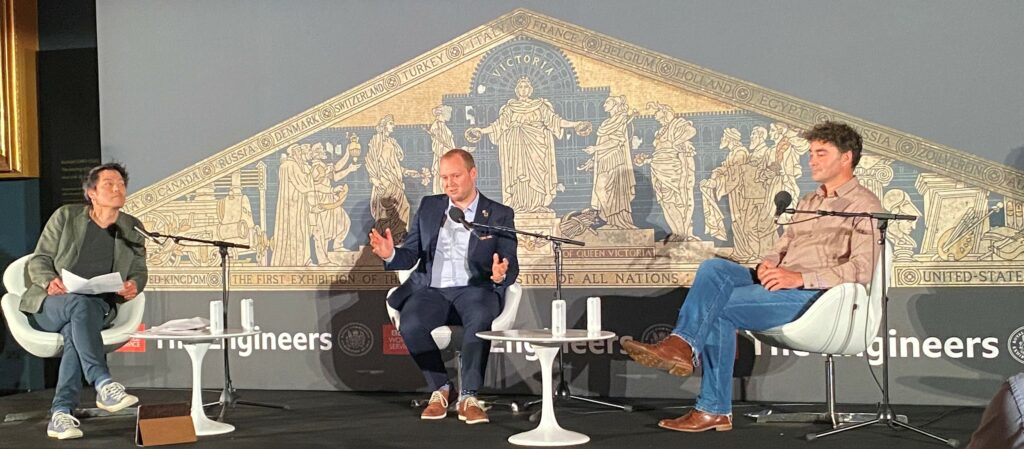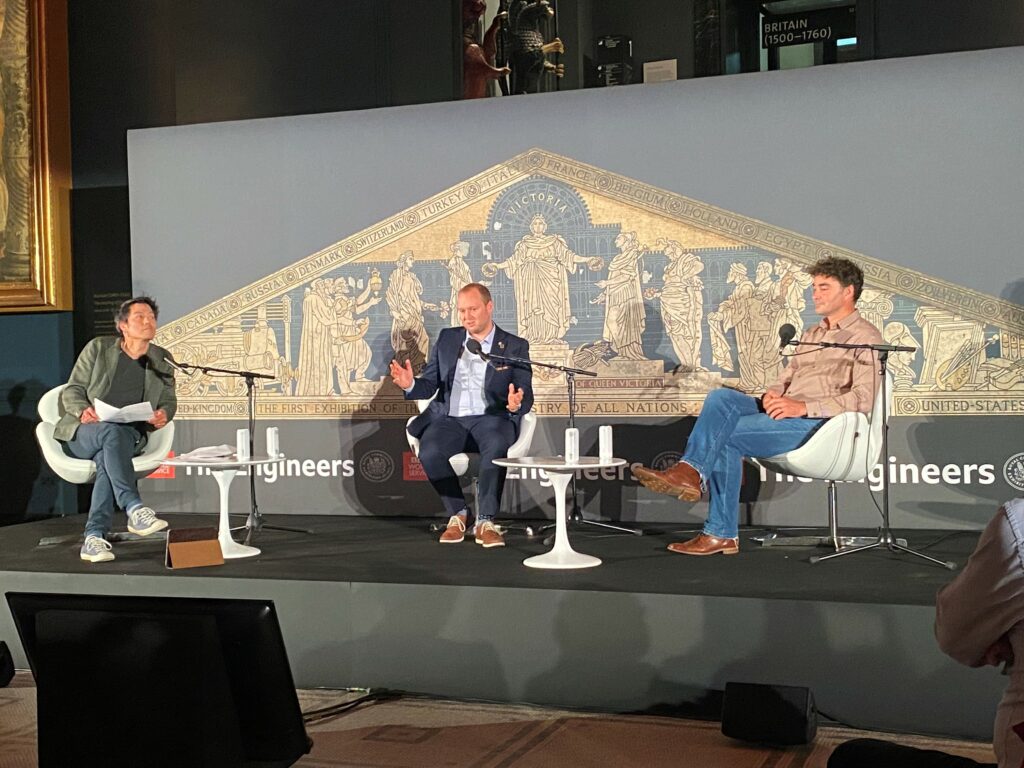EVP and Project Director Fuel Cells in Corvus Energy, Kristian Holmefjord is one out of three participants in the 2021 edition of the annual BBC program “The Engineers”.
The BBC and the Royal Commission for the Exhibition of 1851 have created a partnership bringing together the world’s greatest engineers and innovators to discuss their work in front of a public audience at the Victoria and Albert Museum in London. This is the 2021 edition of the annual series of The Engineers which is produced and recorded by the BBC World Service and broadcast to its weekly audience of 97million worldwide. The Engineers is dedicated to celebrating engineering, and a particular attraction of the project is the potential to inspire people around the world.
This year’s topic is clean energy and Kristian has been chosen due to his extensive knowledge on maritime hybrid prolusion systems, battery power and fuel cell technology – in addition to Corvus`role as a leading supplier of clean energy solutions for the maritime industry.
The program was recorded in front of a live audience two weeks ago and will be broadcast this evening at 20.00 UK local time.

In the program Kristian along with Danielle Merfield of GE Renewable Energy and Henry Snaith of Oxford University address the climate change and discuss if renewable energy can save the planet.
“Kristian highlights current and future engineering challenges to ensure safe, reliable and efficient battery solutions as well as how future fuel technologies and fuel cells can enable marine vessels to travel longer distances in a more sustainable way. Together with the other participants in the panel he puts the whole energy-mix in perspective, discussing the various clean energy solutions for all industries, the differences in geographical locations and how we can reach our overall goal of zero-emissions for a more sustainable future globally.
The program will also be edited in a video version that will be sent on BBC later this year.
Read more about the program in the pressrelease from BBC World Service below:
Pressrelease from BBC World Service:
BBC World Service and Royal Commission for the Exhibition of 1851 to bring climate experts together in special event at the V&A’
As the world grapples with the challenge of climate change, the BBC World Service and the Royal Commission for the Exhibition of 1851 are bringing together some of the world’s leading experts in clean energy solutions and a global audience for a special event at the Victoria and Albert Museum in London.
Presenter Kevin Fong will be joined by some of the world’s leading experts to discuss the future of clean energy, from wind to solar energy and battery-powered mega-ships. They will try and answer the question that shapes our entire future: can renewable energy save the planet?
The panellists for the event are:
- Danielle Merfeld, Vice President and Chief Technology Officer, GE Renewable Energy
- Henry Snaith, Head of the Photovoltaic and Optoelectronic Device group at Oxford University
- Kristian Eikeland Holmefjord, EVP & Project Director – Fuel Cells, Corvus Energy
Steve Titherington, Senior Commissioning Editor, BBC World Service English, says: “It is really important for the World Service to be working with the Royal Commission for the Exhibition of 1851 to hold a global event in the heart of London that brings together the world’s leading scientific minds to present solutions to one of the most pressing issues of our time: climate change, and to have these ideas questioned by our worldwide audience in this unique climate conversation.”
Bernard Taylor, Chair of the Royal Commission for the Exhibition of 1851, says: “The Royal Commission was formed to organise the Great Exhibition of 1851 and since then it has been involved in initiating and supporting the use of cutting edge science, art, design and engineering to solve real world problems. I am delighted that our well-established partnership with the BBC is, this year, addressing the critical problem of climate change by bringing together some of the world’s leading experts to discuss renewable energy with a global audience.”
The event will be recorded on 28 June and will be broadcast on the BBC World Service on 10 July 2021.
It is produced by Charlie Taylor for BBC World Service.
About BBC World Service
BBC World Service delivers news content around the world in English and 41 other language services, on radio, TV and digital, reaching a weekly audience of 319 million. As part of BBC World Service, BBC Learning English teaches English to global audiences. For more information, visit bbc.com/worldservice. BBC World Service English has a weekly global audience of 97 million. BBC News attracts a weekly global audience of 394 million people to its international news services including BBC World Service, BBC World News television channel and bbc.com/news.
About The Royal Commission for the Exhibition of 1851
The Royal Commission for the Exhibition of 1851 awards some 35 postgraduate Fellowships and Scholarships a year, for advanced study and research in science, engineering, the built environment and design. It also makes a small number of Special Awards to support projects consistent with its overall aims. Many of these are focused on raising the awareness of the young to the opportunities presented by science and engineering.

